
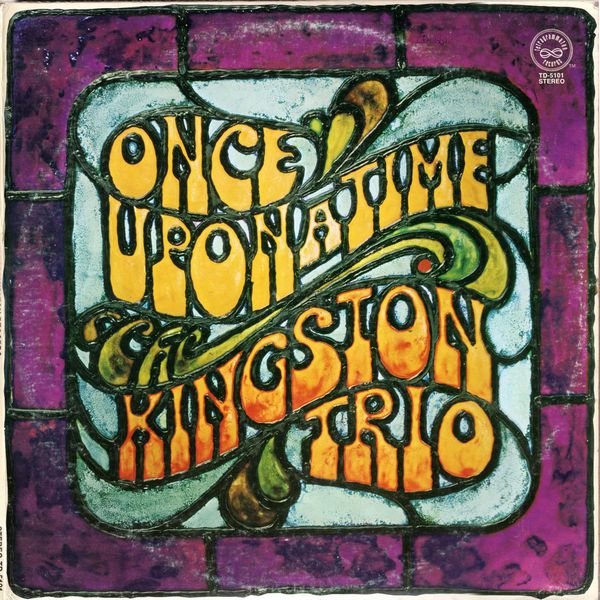 |
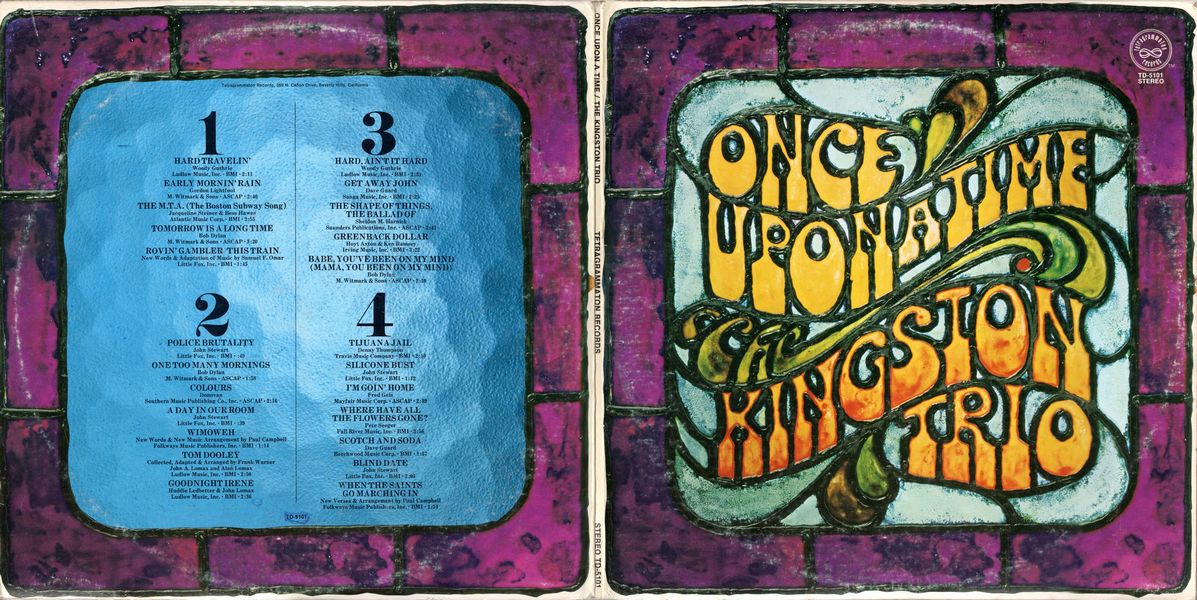
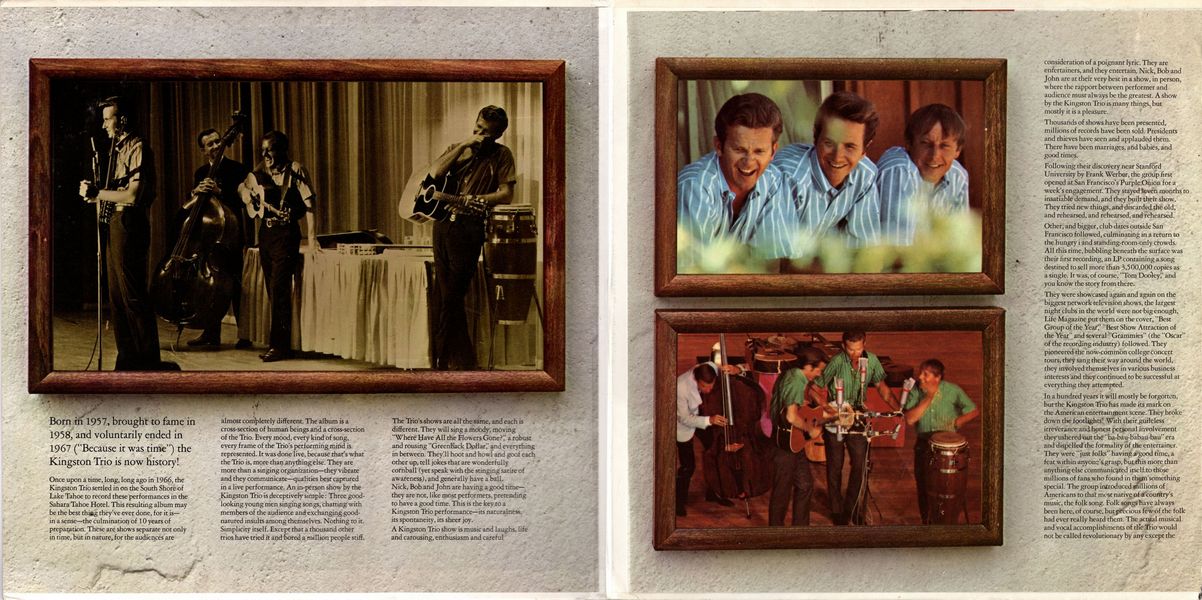 |
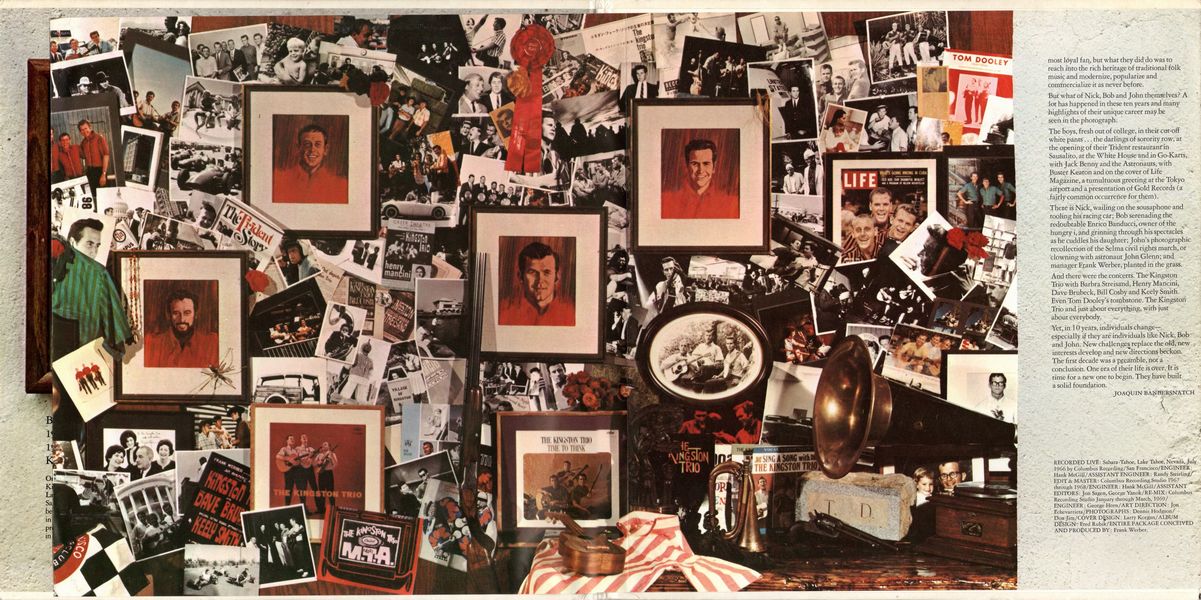
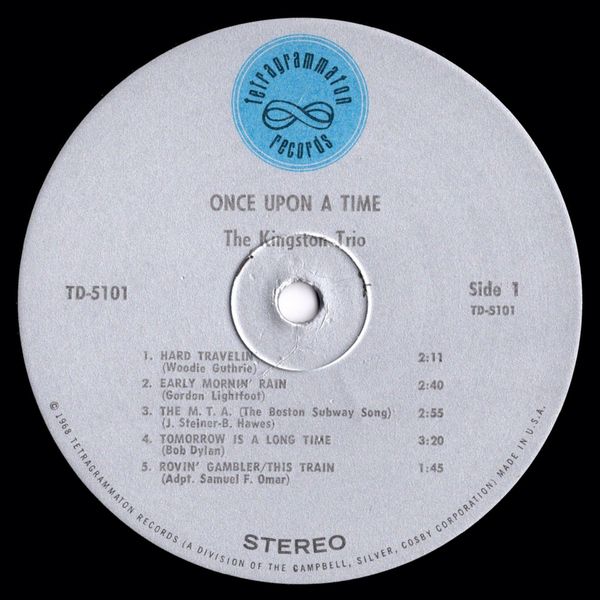
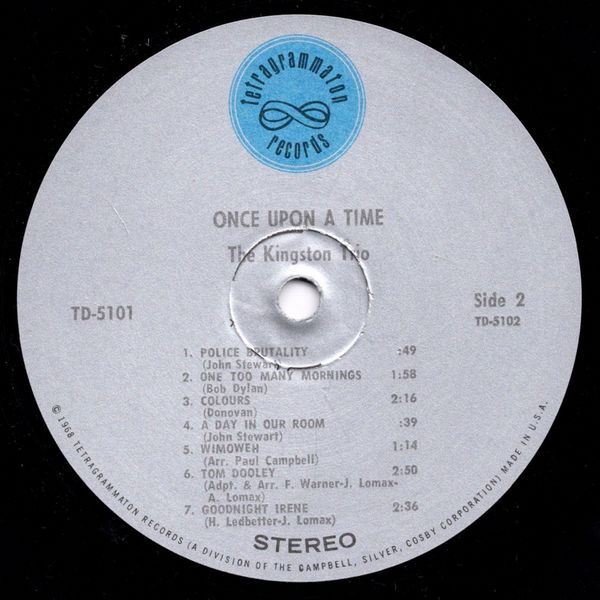 |
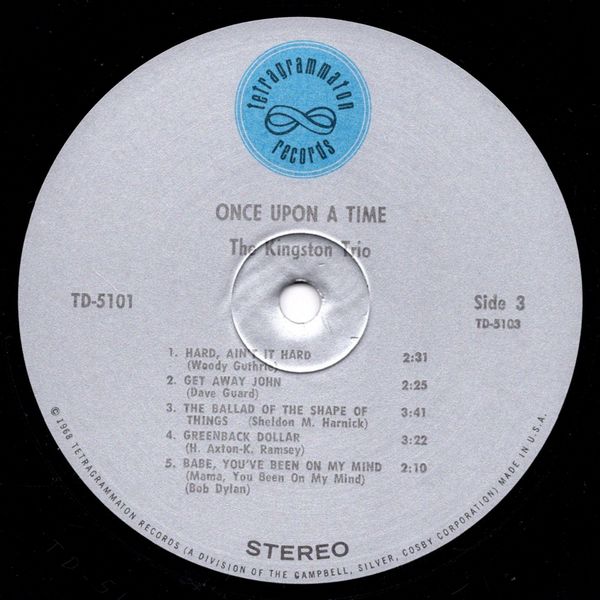
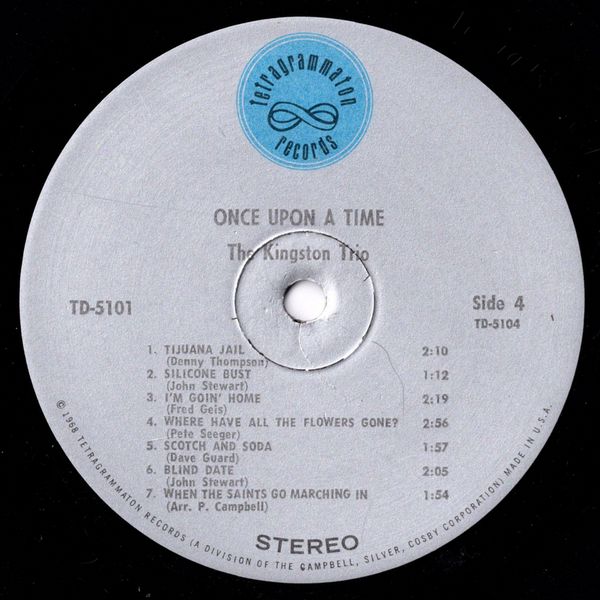
|
Sleeve Notes
Born in 1957, brought to fame in 1958, and voluntarily ended in 1967 ("Because it was time") the Kingston Trio is now history!
Once upon a time, long, long ago in 1966, the Kingston Trio settled in on the South Shore of Lake Tahoe to record these performances in the Sahara Tahoe Hotel. This resulting album may be the best thing they’ve ever done, for it is — in a sense — the culmination of 10 years of preparation. These are shows separate not only in time, but in nature, for the audiences are almost completely different. The album is a cross-section of human beings and a cross-section of the Trio. Every mood, every kind of song, every frame of the Trio’s performing mind is represented. It was done live, because that’s what the Trio is, more than anything else. They are more than a singing organization — they vibrate and they communicate — qualities best captured in a live performance. An in-person show by the Kingston Trio is deceptively simple: Three good-looking young men singing songs, chatting with members of the audience and exchanging good-natured insults among themselves. Nothing to it. Simplicity itself. Except that a thousand other trios have tried it and bored a million people stiff.
The Trio’s shows are all the same, and each is different. They will sing a moody, moving "Where Have All the Flowers Gone?" a robust and rousing "Greenback Dollar" and everything in between. They’ll hoot and howl and goof each other up, tell jokes that are wonderfully cornball (yet speak with the stinging satire of awareness), and generally have a ball.
Nick, Bob and John are having a good time — they are not, like most performers, pretending to have a good time. This is the key to a Kingston Trio performance — its naturalness, its spontaneity, its sheer joy.
A Kingston Trio show is music and laughs, life and carousing, enthusiasm and careful consideration of a poignant lyric. They are entertainers, and they entertain. Nick, Bob and John are at their very best in a show, in person, where the rapport between performer and audience must always be the greatest. A show by the Kingston Trio is many things, but mostly it is a pleasure.
Thousands of shows have been presented, millions of records have been sold. Presidents and thieves have seen and applauded them.
There have been marriages, and babies, and good times.
Following their discovery near Stanford University by Frank Werber, the group first opened at San Francisco’s Purple Onion for a week’s engagement. They stayed seven months to insatiable demand, and they built their show. They tried new things, and discarded the old, and rehearsed, and rehearsed, and rehearsed.
Other, and bigger, club dates outside San Francisco followed, culminating in a return to the hungry i and standing-room-only crowds.
All this time, bubbling beneath the surface was their first recording, an LP containing a song destined to sell more than 3,500,000 copies as a single. It was, of course, "Tom Dooley" and you know the story from there.
They were showcased again and again on the biggest network television shows, the largest night clubs in the world were not big enough, Life Magazine put them on the cover, "Best Group of the Year" "Best Show Attraction of the Year" and several "Grammies" (the "Oscar" of the recording industry) followed. They pioneered the now-common college concert tours, they sang their way around the world, they involved themselves in various business interests and they continued to be successful at everything they attempted.
In a hundred years it will mostly be forgotten, but the Kingston Trio has made its mark on the American entertainment scene. They broke down the footlights! With their guileless irreverance and honest personal involvement they ushered out the "ba-bau-babau-bau" era and dispelled the formality of the entertainer. They were "just folks" having a good time, a feat within anyone’s grasp, but this more than anything else communicated itself to those millions of fans who found in than something special. The group introduced millions of Americans to that most native of a country’s music, the folk song. Folk songs have always been here, of course, but precious few of the folk had ever really heard them. The actual musical and vocal accomplishments of the Trio would not be called revolutionary by any except the most loyal fan, but what they did do was to reach into the rich heritage of traditional folk music and modernize, popularize and commercialize it as never before.
But what of Nick, Bob and John themselves? A lot has happened in these ten years and many highlights of their unique career may be seen in the photograph.
The boys, fresh out of college, in their cut-off white pants … the darlings of sorority row, at the opening of their Trident restaurant in Sausalito, at the White House and in Go-Karts, with Jack Benny and the Astronauts, with Buster Keaton and on the cover of Life Magazine, a tumultuous greeting at the Tokyo airport and a presentation of Gold Records (a fairly common occurrence for them).
There is Nick, wailing on the sousaphone and tooling his racing car; Bob serenading the redoubtable Enrico Banducci, owner of the hungry i, and grinning through his spectacles as he cuddles his daughter; John’s photographic recollection of the Selma civil rights march, or clowning with astronaut John Glenn; and manager Frank Werber, planted in the grass.
And there were the concerts. The Kingston Trio with Barbra Streisand, Henry Mancini, Dave Brubeck, Bill Cosby and Keely Smith.
Even Tom Dooley’s tombstone. The Kingston Trio and just about everything, with just about everybody.
Yet, in 10 years, individuals change — especially if they are individuals like Nick, Bob and John. New challenges replace the old, new interests develop and new directions beckon.
The first decade was a preamble, not a conclusion. One era of their life is over. It is time for a new one to begin. They have built a solid foundation.
Joaquin Bandersnatch